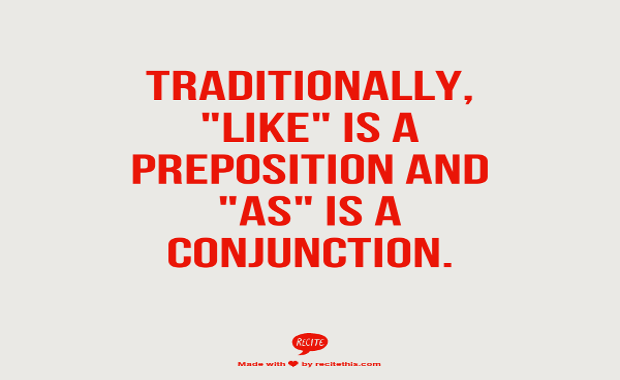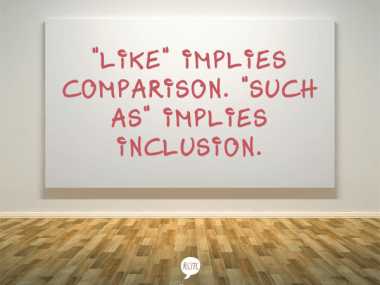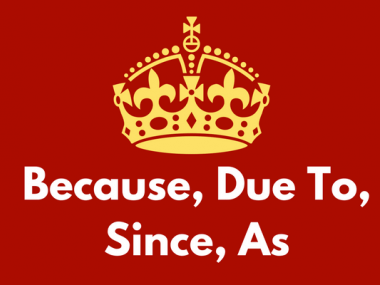Today's topic is "like" versus "as."

Should I write, “It's as if he is the only teacher who understands we have other classes," or “It's like he is the only teacher who understands we have other classes”? Believe it or not, saying "like" can lead you into a raging grammar war.
Like Versus As
The root of this “like versus as” controversy is that traditionally like is a preposition and as is a conjunction. Nevertheless, people have been using like as if it were a conjunction (as I did) for at least 100 years, and grammarians have been raging against that use for just as long. In fact, the Harper Dictionary of Contemporary Usage states that “probably no single question of usage has created greater controversy in recent years” than the conjunctive use of like.
In 1954, an advertising campaign for Winston cigarettes brought the debate into the public eye. Winston said their cigarettes tasted good “like a cigarette should,” and language lovers were outraged because the ad should have said, their cigarettes tasted good “as a cigarette should.”
What Are Prepositions and Conjunctions?
Let’s quickly review what a preposition is, and what a conjunction is. According to the book Woe Is I, a preposition is “a word that ‘positions’ or situates words in relation to one another.” Examples are in, around, and through. A conjunction is, simply, “a connecting word.” Common conjunctions are and, but, and or (1).
When to Use Like, When to Use As
The proper way to differentiate between like and as is to use like when no verb follows (2). For example, Squiggly throws like a raccoon or Aardvark acted just like my brother. Notice that when I use like, the words that come after are generally simple. A raccoon and my brother are the objects of the preposition.
If the clause that comes next includes a verb, then you should use as. For example, Squiggly throws as if he were a raccoon or Aardvark acted just as I would expect my brother to behave. Notice that when I use as, the words that come after tend to be more complex.
You generally hear like used in everyday speech, so that helps me remember that like is the simpler word—or at least it is followed by simpler words. As sounds stuffier and is followed by a more complex clause that contains a verb.







